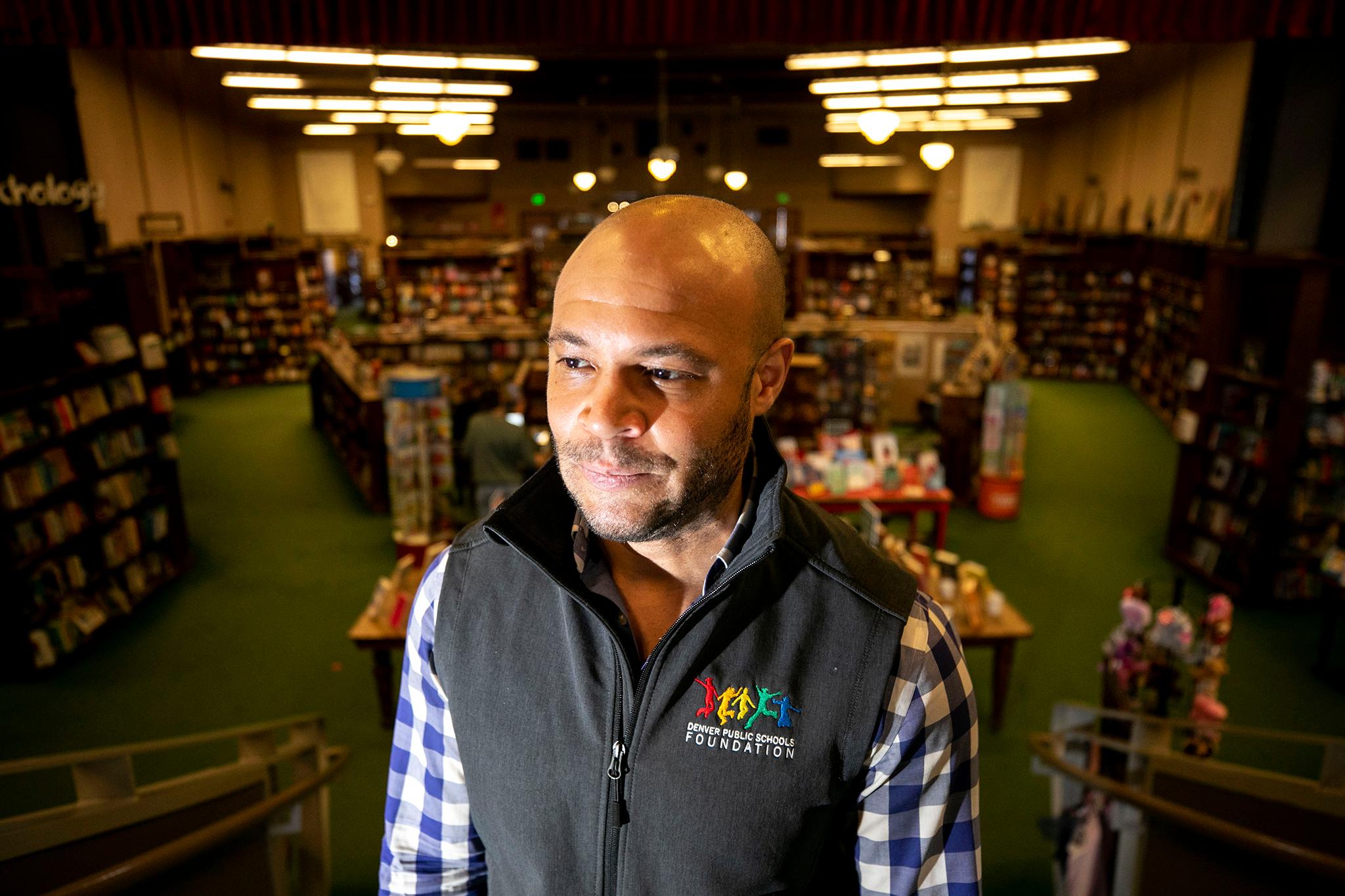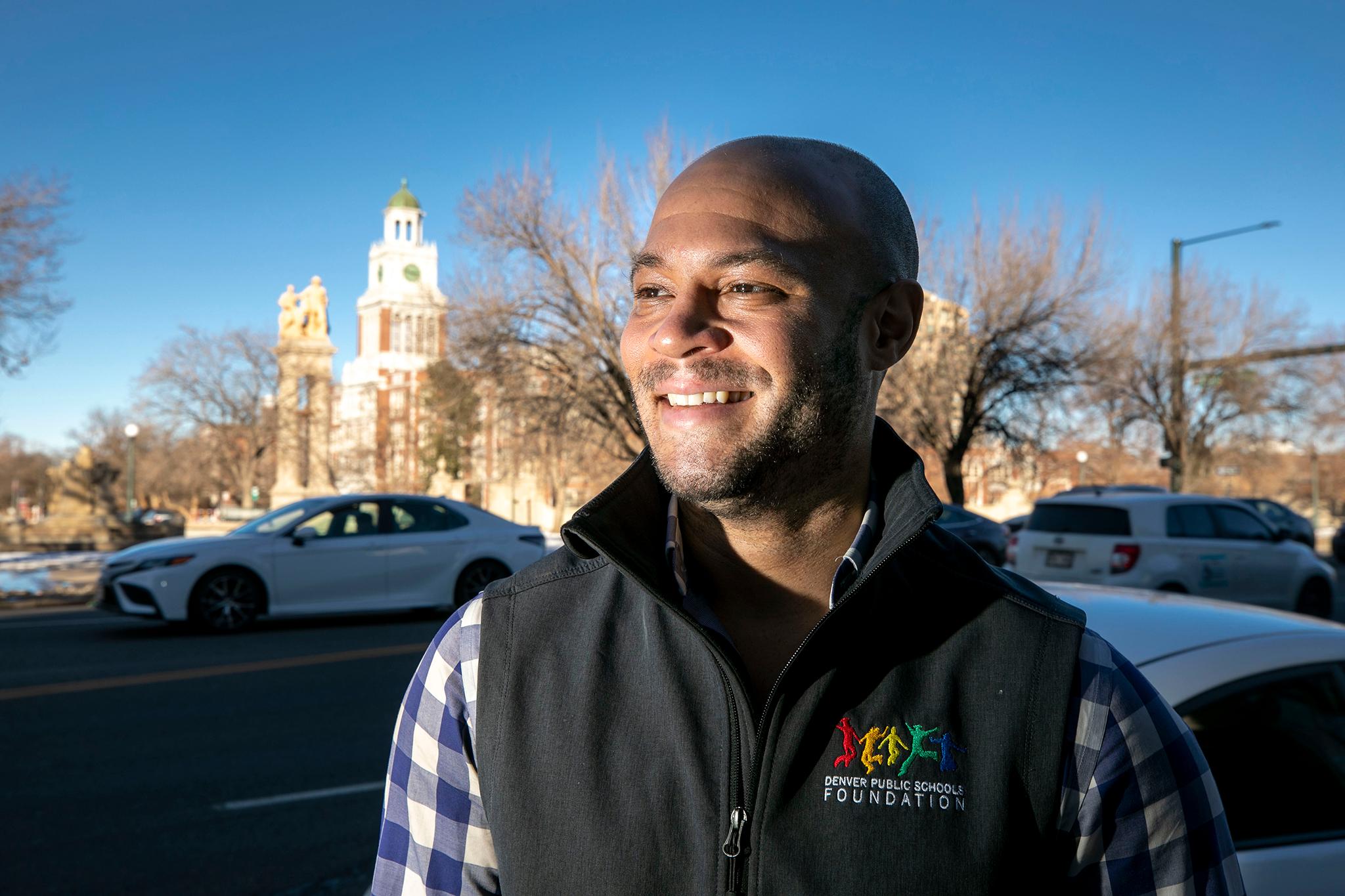Kwame Spearman wants to be Denver's neighborhood mayor.
That's what former mayor Wellington Webb was from 1991 to 2003, the Tattered Cover CEO said, and it's a type of leadership that needs to be resurrected.
"When you ask someone in Denver where they live, they don't say their address. They say their neighborhood," Spearman noted. "And that's a beautiful thing now because, at its core, this race is really about how we build back community."
For Spearman -- who's currently on leave for the race -- that means no more "one-size-fits-all solutions." Denver is too large for city-wide policies that don't take into account the specific needs and desires of neighborhoods.
"The policies that are coming top down aren't resonating, because they're either too big for impact or they're specific in a way that creates polarization," Spearman said.
Spearman grew up in a middle-class family on the border of Montclair and Hilltop and now lives in Whittier.
Those neighborhoods, he said, have different needs than Capitol Hill or Downtown. Preserving single-unit zoning in historic districts makes sense to him, as does allowing greater density in the city center.
Under his leadership, city government would dedicate staff to consider each neighborhood's needs directly and respond with hyperlocal policy.
That approach would span all departments, from police to Community Planning and Development to the Office of Economic Development and Opportunity.

But Denver has 78 neighborhoods. Would the city have that many different sub-divisions for each of the many agencies?
Spearman said segmenting the city would start at the Council District level and also take into account police districts and House Districts.
Each neighborhood -- or segment -- would have a plan created by the city and residents that would take into account all of their needs.
Do they want faster police response time? Check. Accessory dwelling units? Check. More density? Check. Historic preservation? Check.
Government would tailor its response to community requests.
Spearman acknowledged that neighborhoods also have people with varying interests and competing desires.
His hope is that his approach, which would involve collaborating with people with conflicting views, would avoid some of the polarization the city has seen in recent years.
Take approaches to housing. He's put off by the YIMBY (Yes in My Backyard) and NIMBY (No in My Back Yard) approaches to zoning and believes both sides have more in common than they care to admit.
Instead of playing into the divide, city government should be responsive to the "beauty" of the neighborhoods, "their diversity."
Why run for mayor and not a more locally-focused job -- say a district City Council or School Board position?
The strong mayor system Denver has would allow him to use his power to hear as many voices as possible from local communities. If elected he plans to create policy around specific needs he will identify early in his first term.
"The best thing about this job: This is not a moral job," he said. "This is not even a party-affiliated job. We need to run Denver the best for its citizens, and that's the best way to do it."











